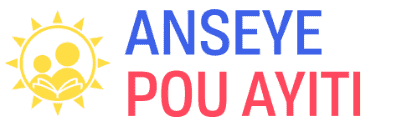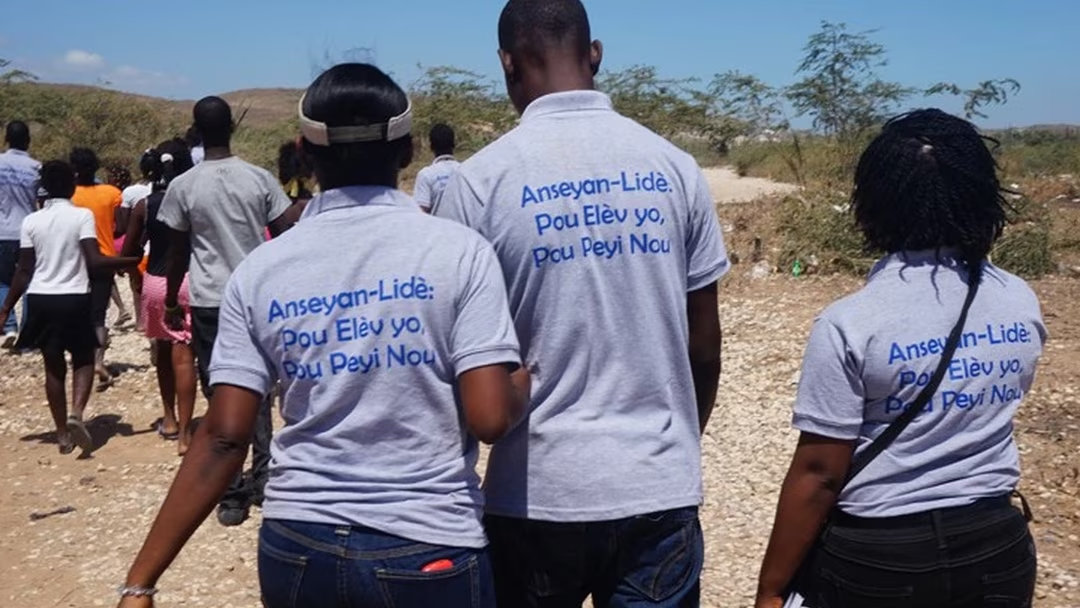I joined Anseye Pou Ayiti (APA) in 2015 after a brief presentation by the CEO of this movement at a school where I was teaching. The recruitment period was very long with several steps. When I was discouraged, I remembered this Creole proverb that says, "With patience, you can see an ant's teats." This saying means with patience, anything is possible. After all these steps, I got selected and followed all the training sessions. I have graduated, so now I am an ambassador for this noble movement.
Today, I want to share with all MAGAPA readers how APA helps me develop professionally and talk a little about my experience as a trainer at a higher education institute called InnovEd-UniQ (Innovation in Education / Quiskeya University) in the village of Anse-Rouge. This institute works in education in several departments, including the Centre and Artibonite Departments.
As a movement, APA trains and equips young leaders working in the classroom and many other disciplines to deal with real-life situations by finding new strategies and methods to do my job better. Despite the many studies I did in education, they didn't manage to change my teaching styles, focusing more on myself. As a result, the students were very passive. But with APA, I came to understand that no student is stupid. I need to help them with their knowledge. No children are dumb, and we should instead look at how the brain works. I have come to understand that children's brains are like the muscles of the human body. The more you train with activities that strengthen the muscles, the more it develops. Similarly, the brain grows as you add new knowledge. APA helps me eliminate corporal punishment, which is a virus for the education system in general and students. Instead of beating my students for poor behavior, I prefer to look for the reasons behind their behavior and analyze them according to their age range and the students' immediate environment. As Rousseau and Piaget have shown, the environment can influence children's behavior. After analyzing them, I come up with logical consequences. This approach is valid not only in the classrooms but in life in general. The logical consequence replaces corporal punishment, verbal violence, etc. We can define it as all the constructive activities we give students by displaying poor behavior and learning from them.
After reading about how the APA training had helped me in the classroom, let's look at my experience as a trainer.
In the commune of Anse-Rouge, where I am working as an InnovEd-UniQ trainer, the administration selected 17 national schools that needed training and post-training support. As we already know, the beginnings are always tricky, so the beginning of the program was not easy, misunderstandings from all parties such as: BDS (District Office) the "STRANGER" mentality that has existed for a very long time. They always claim that they will not allow strangers to come here and dictate what to do. Since they are here, it's their job. These issues have made my job as a trainer/mentor more complicated. But at APA, I received leadership training, especially on transformational leadership, that helped me overcome all these difficulties. While the rest of the team members were having multiple meetings, I also understood I must act quickly and take concrete actions that can influence, convince and make these actors follow us. To make this possible, as many psychologists and anthropologists have said, I had to integrate communities to make what I call participating observations such as: go to "Dezafi" (dezafi is a cock fight united people from different areas), go to the lenten festivals, go to konbit (a type of peasant collective work), go to clubs etc. to speak to the people.
These steps yielded great results because everything is going well. They have come to understand that I and some other team members are no different from them. They have become engaged and offered us their sincere collaboration to move forward together, all that is possible thanks to the training that covered leadership.
To the state, the private sector, responsible citizens, national and international partners, let us continue to support this remarkable movement for the STUDENTS and our COUNTRY.

